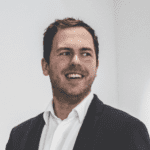Page content
The rise of the impact consultant
The number of impact consultants is clearly increasing exponentially. From freelancers to agencies and even the biggest management consulting firms. We see a trend of large agencies taking over boutique impact agencies to get the impact knowledge in-house. Heck, we also received a couple of offers to take over Quest.
Makes sense. They notice large companies are finally willing to spend big money on sustainability so they move into that area. That’s good, because we need more people to drive positive change. My only question for these people and organizations is though: how sincere are you?
The rise (and fall?) of impact
Everyone is talking about making an impact or launching ‘impact collections’. All good, but let’s not fall into the typical marketing buzzword bingo trap. Something becomes a trend and then the word is so overused it loses all value. What do ‘sustainability’ or ‘eco’ mean nowadays? Why did we move from CSR to ESG? These terms stopped adding value to the marketing message because they were so hollowed out. That’s exactly what’s happening now with words like ‘impact’ or ‘purpose’. And as an (impact) consultant, you have a major role to play in this case.
So, what if we promise each other this?
1/ Cut the bs, and stop greenwashing
In our first year in business, we refused more revenue than we generated. The reason? The companies who asked us for help didn’t align with our values. In fact, the whole point of starting up Quest was to stop the greenwashing and to only support those who truly wanted to ignite positive changes.
As a consultant, it’s very easy to accept money, play along with your customer and then copy that approach for your next customer. It’s way more difficult to call out bs or greenwashing when you see it. And yet, that’s exactly your responsibility as impact consultants.
As an impact consultant, it’s your responsibility to call out bs or greenwashing when you see it.
Michael Boschmans, Founder – Quest
We still see too many empty promises combined with a lack of ambition. Being an impact consultant shouldn’t be about making clear what minimal promise a company can get away with. You always have to push for true change. Don’t settle for less. If you don’t push these organizations, who will?
2/ Make sustainability a key differentiator
Let’s do an exercise and analyze the impact reports and strategies of the 30 major players in a certain segment on a global scale. What you’ll see is a lot of materiality assessments, (bronze, silver, gold) labels, SDG icons and 2030 or 2050 promises (I wonder what happened to all those 2020 goals?). Don’t get me wrong, all of these are necessary but let’s be honest: if you compare the impact reports and strategies of all 30 organizations, how many of them truly stand out?
In so many industries, the potential to use sustainability as a key differentiator is still huge. As impact consultants, you cannot attain that level with a classic copy-paste approach. You need to dig deep and analyze the market before you can come up with a unique, ambitious story that differentiates your customer from all others and pushes your customers’ image and profits to new heights.
3/ Make yourself and your surroundings proud
At the end of the day, I can say I’m very proud of the work we’re doing with Quest. Every day, we do our best to create positive change together with our amazing change-making customers. We continuously challenge ourselves and our customers and when something doesn’t feel right, we stop doing it. Because the main KPI for all team members is very clear: positive impact.
You don’t get to this level of pride by only saying yes. You need to make choices. Whenever I have to make a hard decision the ultimate question I always ask myself is: will this offer my daughters a better or a worse world to live in? That tends to put things into perspective and make decisions easier.
I wish you an equal amount of amazing change-making customers and an equal sense of pride about the work you’re doing. Because that can only mean you’re enjoying driving positive change. And in that case, we should probably talk soon to discuss a long-term collaboration.
What do you think?




